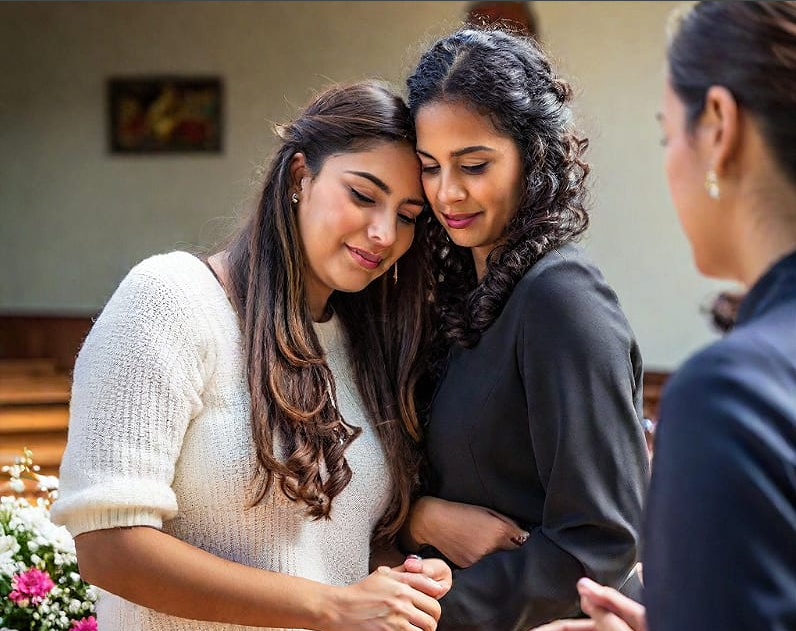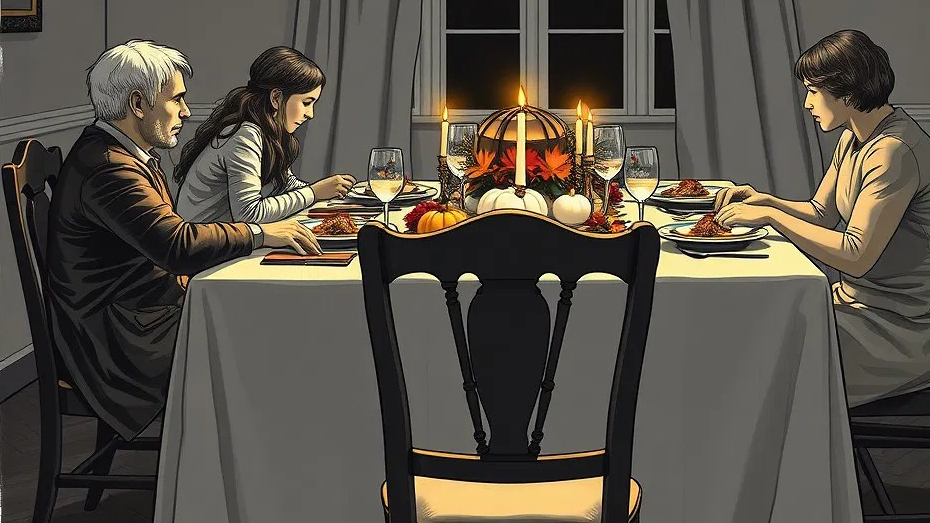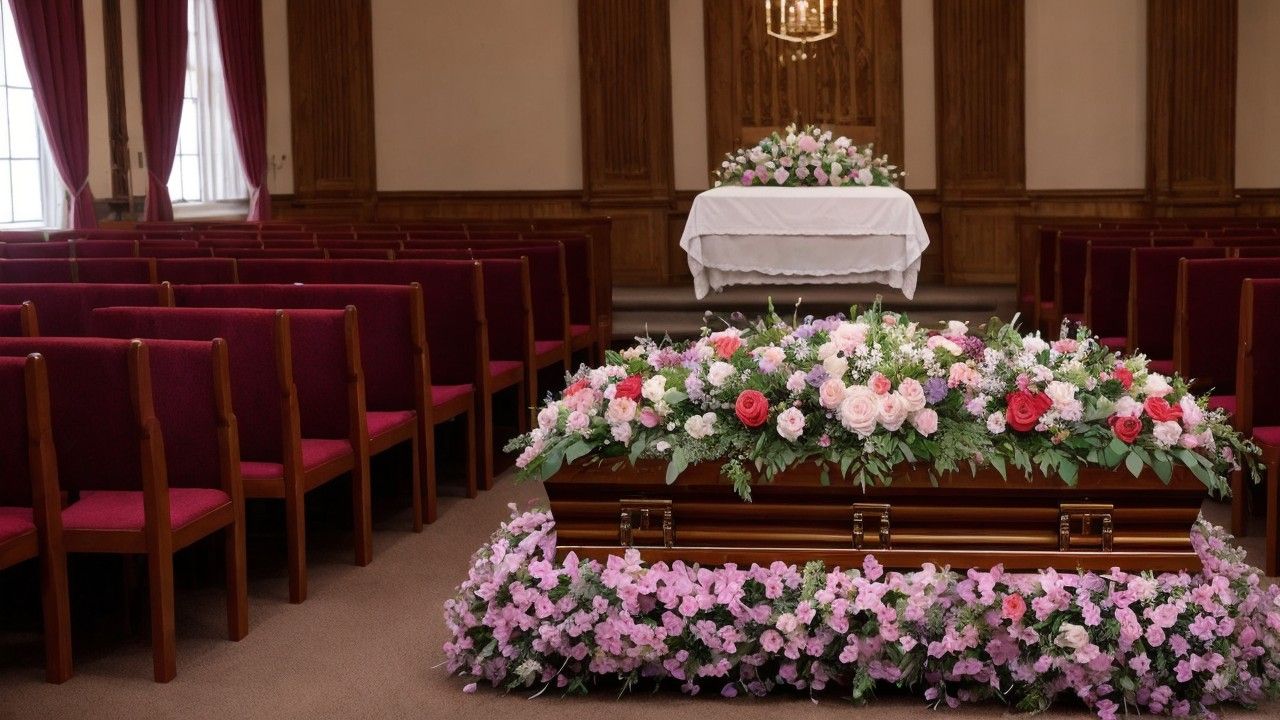Find a Trusted Proivder
Helpful Links

Business Hours
- Mon - Fri
- -
- Sat - Sun
- Closed

Share This Article
We live in a world where the ultimate end is death. And yet, the irony is that death is something not many people want to imagine, let alone talk about. Like the last taboo that it is. But as Ben Franklin once said, death, besides taxes, is the one thing we can be sure to be confronted with at some point.
Funerals happen all the time. Every waking day. It could be weeks, months or even years since you last attended a funeral, but chances are you might find yourself attending yet another in the future.
So it helps to know that your behavior and words before, during and after service can help or hurt the bereaved. You don't want to say or do anything —deliberately or unwittingly— that will cause grief-stricken people additional suffering. So here are eight basic funeral etiquette to help you stay on your best behavior next time you attend one.
1. Know What To Say
There is a time for everything, but a funeral service is not the best place to give your opinion on how the deceased died. If it was through suicide, you may want to keep your comment on suicide rates and statistics to yourself.
Seriously, no family wants to hear about how mental health is on a serious decline or how selfish their loved one was to take their own life. Even if it's true, that's not the time and place to say it. You want to be not only sensitive but also empathetic.
Think of fond memories of the deceased person and share them with the family. They'd be glad to focus on happier stuff and, even with that, keep it short and to the point. Sometimes, simple words like “My condolences to you and the entire family” and "so sorry for your loss” are enough, says etiquette expert and author of Let Crazy Be Crazy,
Elaine Swann.
While it's natural to want to go on and on about the life and times of a deceased person, you don't want to bombard the grieving since some of those memories can trigger more pain.
2. Know What Not To Say
Some remarks appear harmless and well-meant until they aren't. You don't want to sound insensitive with "They're in a better place" and "The pain gets better with time" kind of platitudes. Also, avoid digging for details by asking what caused the death, what their medical care was like or what could have been done differently to avert the inevitable.
It would help if you also refrained from telling the grieving that you know how they feel. Seriously, you don't because while death is universal, grief is personal. If you feel like giving your smart comments and opinions, replace the urge with a hug or smile and let it slide.
3. Dress Appropriately
Death is a sad occasion that should be approached with respect, and that also means dressing the part. Traditionally, black has always been the ultimate color of death and mourning. It's also safe to incorporate shades of gray, navy blue and dark purple. However, by all means, avoid bright or flashy colors that don't fit the occasion.
You also want to reserve your bold fashion statements for another occasion, not a funeral. Your dressing should be appropriate, respectful and subtle. Again, don't be too casual that you show up in t-shirts, shorts or crocks.
4. Do As The Romans Do
When attending a religious or culturally diverse funeral, leave your beliefs or traditions at home. Being respectful means embracing diversity and accepting that people do the same things differently based on their culture, traditions and beliefs. For example, when invited to a Jewish funeral, don't bring flowers since it's not part of Jewish burial traditions.
If you feel you must bring something, charitable donations will always go a long way. In short, do as the Romans do, even if it's not what you're used to doing.
5. Choose The Best Gifts
It always helps to do some homework on the kind of gifts to give a bereaved family. This is especially true if you hold some cultural differences. For example, in a Hindu funeral, the family would appreciate a fruit basket or an assortment of spices and dried nuts. While a typical Christian or non-religious family would be happy with a gift card or food.
The idea of providing food is highly thoughtful. Think of all those extended family members who may travel from different places to attend the funeral. They could do with a meal that's easy to heat and serve. As for flowers, these can always go to the funeral home, but giving them directly to the family is thoughtful, especially if they have a gathering at home before the actual service.
6. Be Ready To Parent
It's okay to bring along your little one, but you should be ready to parent. Children can be fussy and restless, and those below ten years old may not understand the solemnity of the occasion, which means they could be a nuisance if not watched. If you're invited to a funeral, inquire whether there is a space where parents can escape should the little people prove to be a handful.
Alternatively, sit closer to the back to enable you to make a quick dash outside with your child when necessary. Think of how inconveniencing your child's noise may be on such a sad occasion. While it's understandable that grieving parents may not be in their best elements to pay attention to their children, they should have a trusted minder to watch over the little ones during the service. Says Michigan-based funeral director Loice Hura.
Her sentiments are shared by her West Virginia-based counterpart, Lynn Fletcher. “I love children, but I have great issues with parents who don’t parent. Letting kids wreak havoc in the funeral home is my pet peeve. I have no problem telling a child, “We must be respectful; we don’t run or be loud at the funeral home, so please don’t do that again.
Most listen,” she adds. “If they don’t, I find the parent and tell them their child is being disruptive. Most take their child in hand. The ones who get mad are simply embarrassed that someone had to tell them.”
We understand that grieving is already a difficult thing, whether you're a mourner or the bereaved. However, having young, unsupervised children at the funeral home can be inconvenient. The bottom line is to leave them home if they're below ten; otherwise, you should be ready to parent.
7. Focus, Please
So you haven't seen some of your relatives and friends in a while. And now that a common relation has passed, you'll reunite at the funeral. That's all good, but don't turn the sad occasion into a family reunion photoshoot. It's great to reconnect again, and those photos and videos would look great on your next social media post, no doubt.
However, you want to be considerate of the bereaved, who may read disrespect in your behavior. Remember you are reunited to mourn and bury another departed friend or relative, so you want to focus on the reason behind the occasion, not behaving like you're at a graduation party.
Also, there's nothing as disrespectful as going to the casket and snapping photos for social media. The same goes for answering your phone during service or ignoring the usher's directions not to use the reserved seats. If you're called to speak, refer to number one above. Know what to say and keep it short, relevant and straight to the point.
8. Be Thoughtful
Death is an overwhelming thing. Grieving people typically shut down and may not be in the best position to come up with great ideas or suggestions, which is why if you want to help, you should go right on and say what you can do. Don't say, “I'll be right here if you need me.” Instead, say, “Can I go pick someone up from the airport?” Or “Let me go with the kids for the night”, or, “Should I take the flowers to the funeral home?”
These suggestions will readily be welcome because you'll be helping take some responsibilities off their hands, and they could use some relief. So be specific and thoughtful; don't just make promises or expect them to ask for help.
Looking for the perfect flowers to bring to a funeral?
Find a funeral florist near you.
Related Articles
Related Articles





